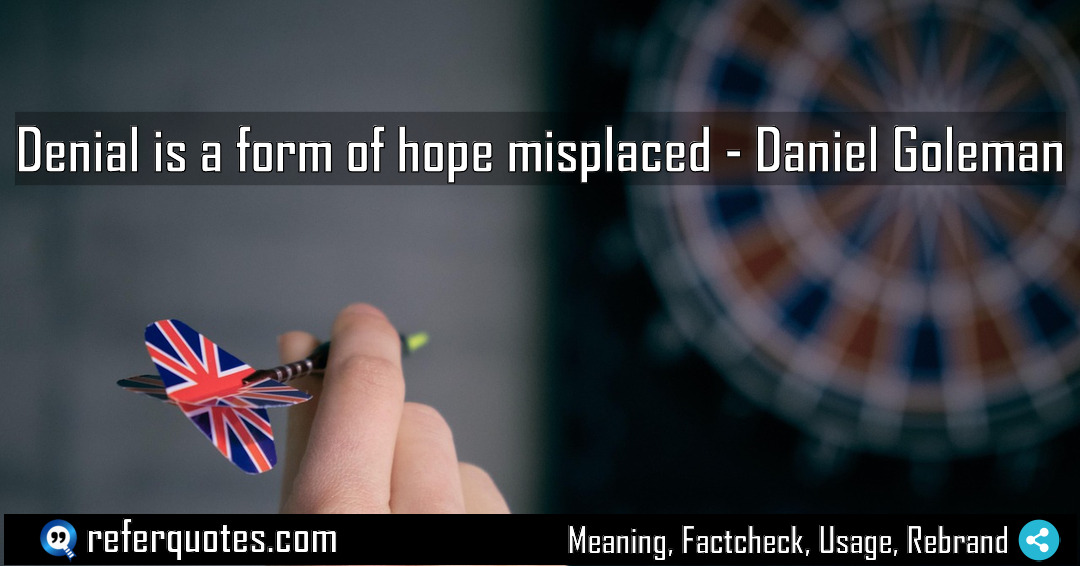Denial is a form of hope misplaced is such a powerful lens for understanding self-deception. It reframes our protective lies not as weakness, but as a misguided attempt to cling to a safer reality. Let’s break down why this concept is so crucial for personal and professional growth.
Share Image Quote:Table of Contents
Meaning
At its core, this quote means that denial isn’t just a refusal to see the truth. It’s an active, albeit flawed, strategy to protect a hope we’re terrified of losing.
Explanation
Here’s the thing I’ve seen again and again, both in myself and coaching clients. We think denial is a passive state, like sticking your head in the sand. But Goleman is saying it’s actually active. It’s a psychological maneuver. You’re not just ignoring a problem; you’re investing emotional energy in maintaining a specific, more palatable version of reality. You’re hoping that if you don’t acknowledge the tumor, the failing business, the crumbling relationship, then maybe, just maybe, it won’t be real. That’s the “hope” part. But it’s misplaced because it’s directed at changing reality through inaction and ignorance, which never, ever works in the long run. It’s a hope that actively prevents you from taking the real steps needed to actually fix the situation.
Quote Summary
| Context | Attributes |
|---|---|
| Original Language | English (3668) |
| Category | Emotion (177) |
| Topics | denial (11), hope (29), truth (77) |
| Literary Style | poetic (635) |
| Emotion / Mood | gentle (183), reflective (382) |
| Overall Quote Score | 87 (185) |
Origin & Factcheck
This insight comes directly from Daniel Goleman’s 1985 book, Vital Lies, Simple Truths: The Psychology of Self-Deception, published in the United States. It’s a common one to be misattributed to general psychology texts or other self-help gurus, but the phrasing is uniquely Goleman’s.
Attribution Summary
| Context | Attributes |
|---|---|
| Author | Daniel Goleman (125) |
| Source Type | Book (4032) |
| Source/Book Name | Vital Lies, Simple Truths: The Psychology of Self-Deception (61) |
| Origin Timeperiod | Modern (530) |
| Original Language | English (3668) |
| Authenticity | Verified (4032) |
Author Bio
Daniel Goleman is a psychologist and bestselling author whose journalism at The New York Times brought brain and behavior science to a wide audience. He earned a BA from Amherst and a PhD in psychology from Harvard, and studied in India on a Harvard fellowship. Goleman’s research and writing helped mainstream emotional intelligence, leadership competencies, attention, and contemplative science. He co-founded CASEL and a leading research consortium on EI at work. The Daniel Goleman book list includes Emotional Intelligence, Working with Emotional Intelligence, Primal Leadership, Social Intelligence, Focus, and Altered Traits.
| Official Website
Where is this quotation located?
| Quotation | Denial is a form of hope misplaced |
| Book Details | Publication Year: 1985; ISBN: 9780743240156; Last edition: 1996 Harper Perennial; Number of pages: 288. |
| Where is it? | Approximate page from 1996 edition, Chapter 2: The Ecology of Mind |
